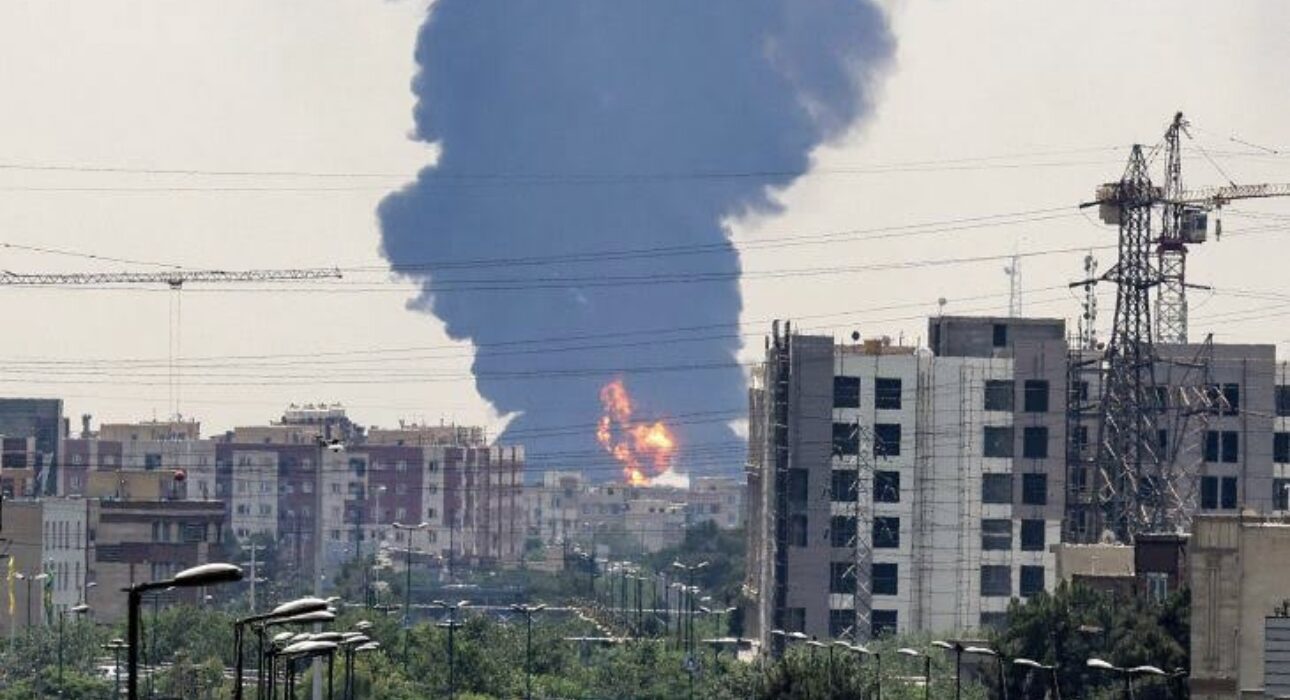Israeli Airstrikes Rock Northern Tehran as Conflict Escalates

In a dramatic escalation of hostilities between Israel and Iran, a series of Israeli airstrikes struck northern Tehran on Monday, targeting military and government infrastructure in what has been described as one of the most intense bombardments of the Iranian capital in recent memory.
The strikes, carried out in the early hours of the morning, hit key sites including the notorious Evin Prison, the headquarters of Iran’s Islamic Revolutionary Guard Corps (IRGC), and areas surrounding the Fordow nuclear facility.
Eyewitnesses reported loud explosions followed by rising plumes of smoke across the Tehran skyline, while Iranian air defenses were seen firing into the night sky in a futile attempt to intercept the incoming jets.
Israeli officials have yet to formally acknowledge the operation, but multiple intelligence sources and regional analysts have confirmed the raid was carried out by the Israeli Air Force as part of its ongoing campaign against Iran’s military and nuclear capabilities.
Evin Prison, which houses political dissidents and foreign detainees, appeared to suffer significant damage, with portions of its outer walls destroyed and reports emerging of inmate escapes. Footage circulating on Iranian social media showed fire and heavy smoke engulfing the prison complex.
Other targets included IRGC communication hubs and supply routes connected to Iran’s deeply buried nuclear enrichment facilities. Although damage assessments are ongoing, Iranian officials have confirmed that at least two soldiers were killed and several others wounded.
The Fordow facility, believed to be central to Iran’s high-level uranium enrichment program, was not directly struck but nearby access roads and logistical centers were reportedly hit.
The airstrikes came amid an 11-day cycle of intensifying violence that began with U.S. attacks on three of Iran’s underground nuclear sites. In response, Iran launched a series of retaliatory missile and drone strikes on Israeli cities including Tel Aviv, Haifa, and Ashdod. Monday’s Israeli strike represents a significant escalation, broadening the battlefield from targeted nuclear infrastructure to critical command-and-control centers within the Iranian capital itself.
A senior Israeli military official, speaking anonymously, described the operation as a “strategic warning” and a message that Israel would not hesitate to strike at the heart of Iran’s regime if its national security was threatened.
Iran’s foreign ministry swiftly condemned the strikes as acts of aggression and a “flagrant violation of sovereignty,” vowing retaliation. Tehran is reportedly considering both military and economic responses, including threats to close the Strait of Hormuz, a vital chokepoint for global oil shipments.
Iranian President Ebrahim Raisi held an emergency meeting with military leaders, where sources say counter-strike options were discussed. In a televised address, Raisi declared, “This attack will not go unanswered. Iran will defend its dignity and its people.”
The global community has reacted with alarm. Russia and China have called for immediate de-escalation and dialogue. The European Union expressed deep concern over the risk of a full-blown regional war. Meanwhile, the United States, though not directly involved in the latest Israeli strikes, has maintained a supportive stance toward Israel’s right to defend itself, while urging restraint on all sides.
Tehran residents described scenes of chaos and fear, with thousands seeking shelter and some neighborhoods experiencing power outages and communication disruptions. Humanitarian organizations are monitoring the situation closely, warning of potential displacement and civilian casualties if the conflict escalates further.
Global oil markets have responded nervously, with prices spiking over fears that hostilities could disrupt traffic through the Strait of Hormuz. Analysts warn that prolonged military exchanges could severely impact energy supplies and regional stability.
As Iran weighs its next move and Israel signals it is prepared for prolonged confrontation, diplomatic channels are being tested to the limit. Observers warn that unless a ceasefire is brokered soon, the region could tip into a broader, more destructive war with consequences far beyond the Middle East.
For now, the skies over Tehran remain tense, and the world watches closely for what comes next in this dangerously unfolding chapter of Middle Eastern geopolitics.







